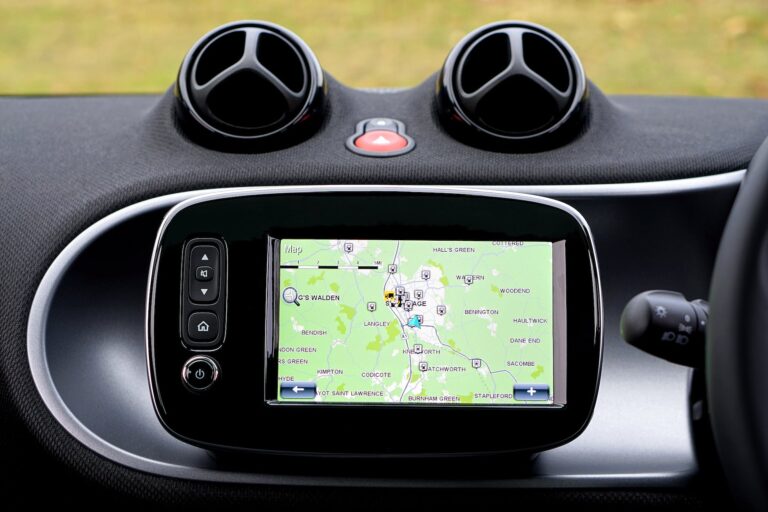The Importance of Car Dealership Accounting Software
In the fast-paced world of car dealerships, car dealership accounting software plays a crucial role in ensuring efficient financial management. This software offers a range of benefits that streamline operations and enhance decision-making processes.
Streamlining Financial Management
Car dealership accounting software simplifies and automates various financial management tasks, saving time and reducing the risk of errors. It allows dealerships to keep track of their financial transactions, including sales, purchases, payroll, and expenses. By automating these processes, the software eliminates the need for manual data entry and reduces the chances of data discrepancies.
The software also enables the creation of detailed financial reports, providing dealerships with valuable insights into their financial health. These reports can include balance sheets, income statements, and cash flow statements, allowing dealership owners to monitor their revenue, expenses, and profitability.
Enhancing Efficiency and Accuracy
Manual accounting processes can be time-consuming and prone to human errors. Car dealership accounting software eliminates these concerns by automating calculations and ensuring data accuracy. By digitizing financial records, the software helps dealerships maintain organized and easily accessible financial information.
Additionally, the software enables integration with other systems within the dealership, such as inventory and sales systems. This integration allows for seamless data flow and reduces the need for duplicate data entry. For example, when a vehicle is sold, the accounting software can automatically update the inventory and sales records, saving time and minimizing the chances of data inconsistencies.
Improving Decision Making
Accurate and timely financial information is vital for making informed business decisions. Car dealership accounting software provides dealership owners and managers with real-time access to financial data, allowing them to assess the financial health of their business at any given moment. This information can help identify areas of improvement, optimize inventory management, and make strategic decisions to drive growth.
Furthermore, the software enables financial forecasting and analysis, providing insights into future revenue projections, expenses, and profitability. With this information, dealership owners can make data-driven decisions and develop effective strategies to achieve their business goals.
By streamlining financial management, enhancing efficiency and accuracy, and improving decision-making processes, car dealership accounting software is an indispensable tool for car dealerships. It empowers dealerships to effectively manage their finances, optimize operations, and achieve long-term success.
Understanding Car Dealership Accounting Software
To effectively manage the financial aspects of a car dealership, car dealership accounting software plays a crucial role. This section will provide an overview of key features and functions, integration with inventory and sales systems, and compliance with industry regulations.
Key Features and Functions
Car dealership accounting software offers a range of features and functions designed to streamline financial management processes. These include:
-
General Ledger and Chart of Accounts: The software provides a centralized system to record and track financial transactions, ensuring accurate and up-to-date information for financial reporting and analysis.
-
Accounts Payable and Receivable: The software facilitates the management of accounts payable, allowing car dealerships to efficiently handle invoices, payments, and vendor records. It also assists in tracking accounts receivable, ensuring timely collection of payments from customers.
-
Inventory Management and Costing: Integration with inventory systems allows for seamless tracking of vehicle inventory, including vehicle costs, sales, and profits. This feature enables car dealerships to have a comprehensive view of their inventory and make informed pricing decisions.
-
Financial Reporting and Analysis: Car dealership accounting software generates financial reports, such as balance sheets, income statements, and cash flow statements, providing insights into the financial health of the dealership. These reports aid in decision-making and identifying areas for improvement.
Integration with Inventory and Sales Systems
Integration with inventory and sales systems is a crucial aspect of car dealership accounting software. By linking the accounting software with inventory management systems, car dealerships can ensure accurate and real-time updates of vehicle inventory, costs, and sales. This integration eliminates the need for manual data entry and reduces the chances of errors or discrepancies.
Additionally, integration with sales systems allows for seamless transfer of sales data, including customer information, vehicle sales prices, and financing details. This integration streamlines the process of recording sales transactions and automates the calculation of commissions, facilitating accurate financial reporting.
Compliance with Industry Regulations
Car dealerships must comply with various industry regulations and reporting requirements. Car dealership accounting software helps ensure compliance by providing tools and features tailored to meet these requirements. This includes generating reports for tax purposes, tracking sales tax liabilities, and facilitating the documentation of financial records for auditing or regulatory purposes.
By utilizing car dealership accounting software that is designed with compliance in mind, car dealerships can reduce the risk of errors and penalties associated with non-compliance.
Understanding the key features, integration capabilities, and compliance functionalities of car dealership accounting software is essential when selecting the right solution for your dealership. By assessing your business needs, evaluating software options, and considering implementation and support requirements, you can make an informed decision that aligns with the financial management goals of your car dealership.
Choosing the Right Car Dealership Accounting Software
Selecting the appropriate car dealership accounting software is a crucial decision that can greatly impact the financial management of your car lot. With numerous software options available, it’s essential to carefully assess your business needs, evaluate the available options, and consider factors related to implementation and support.
Assessing Your Business Needs
Before diving into the selection process, it’s important to assess your specific business needs. Consider factors such as the size and complexity of your dealership, the volume of transactions you handle, and the level of reporting and analysis required. Identify the specific accounting tasks that the software should address, such as general ledger management, accounts payable and receivable, and inventory costing. By understanding your unique requirements, you can narrow down your software options to those that cater to your specific needs.
Evaluating Software Options
Once you have a clear understanding of your business needs, it’s time to evaluate the available car dealership accounting software options. Look for software that offers the key features and functions necessary for efficient financial management. These may include general ledger and chart of accounts management, accounts payable and receivable, inventory management and costing, and robust financial reporting and analysis capabilities.
Consider factors such as user-friendliness, scalability, and integration capabilities with other systems you use in your dealership, such as dealership management software or automotive inventory management software. Read user reviews, compare pricing structures, and request demos or trials to get hands-on experience with the software. This will help you make an informed decision based on the suitability of the software for your dealership.
Considerations for Implementation and Support
In addition to the features and functions of the software itself, it’s important to consider factors related to implementation and ongoing support. Evaluate the implementation process to ensure a smooth transition from your existing accounting system to the new software. Determine the level of training and support provided by the software vendor, as well as the availability of technical assistance when needed.
It’s also essential to consider the scalability of the software to accommodate future growth and changes in your dealership’s needs. Look for a software vendor that offers regular updates, maintenance, and responsive customer support. By choosing a reliable and supportive vendor, you can ensure that your dealership’s accounting processes run smoothly and efficiently.
Choosing the right car dealership accounting software requires a comprehensive evaluation of your business needs, thorough assessment of available options, and consideration of implementation and support factors. By taking these steps, you can find a software solution that aligns with your dealership’s requirements, enhances financial management, and contributes to the overall success of your business.
Common Features of Car Dealership Accounting Software
To effectively manage the financial aspects of a car dealership, car dealership accounting software offers a range of features designed specifically for the industry. These features streamline accounting processes, increase efficiency, and provide valuable insights for decision-making. Here are some common features found in car dealership accounting software:
General Ledger and Chart of Accounts
The general ledger is the backbone of any accounting system, and car dealership accounting software is no exception. It provides a central repository for recording financial transactions and manages the chart of accounts, which organizes transactions into various categories.
With a comprehensive general ledger and chart of accounts, car dealerships can accurately track revenue, expenses, assets, and liabilities. This feature ensures that financial information is organized, easily accessible, and facilitates the generation of accurate financial reports.
Accounts Payable and Receivable
Car dealership accounting software simplifies the management of accounts payable and receivable processes. It allows car dealerships to efficiently track and pay invoices from suppliers (accounts payable) and manage customer payments and outstanding balances (accounts receivable).
By automating these processes, car dealerships can streamline payment cycles, reduce errors, and improve cash flow management. The software can generate aging reports for accounts receivable, providing valuable insights into outstanding payments and helping to prioritize collections.
Inventory Management and Costing
Inventory management is a critical aspect of a car dealership’s operations. Car dealership accounting software integrates with inventory management systems to accurately track and manage vehicle inventory. This includes monitoring the cost of vehicles, tracking sales, and updating inventory levels in real-time.
Additionally, the software provides tools for inventory costing, allowing car dealerships to determine the cost of each vehicle based on factors like purchase price, transportation costs, and any additional expenses. This information is crucial for accurate financial reporting and profitability analysis.
Financial Reporting and Analysis
Car dealership accounting software offers robust reporting and analysis capabilities. It provides a variety of financial reports, such as income statements, balance sheets, cash flow statements, and sales reports. These reports provide a comprehensive overview of the dealership’s financial performance and help identify trends and areas for improvement.
Furthermore, the software may offer customizable reporting options, allowing car dealerships to generate reports that align with their specific needs. This feature enables effective financial analysis and aids in making informed business decisions.
By utilizing these common features, car dealerships can benefit from accurate financial management, streamlined processes, and valuable insights. When selecting car dealership accounting software, it is crucial to assess the specific needs of your business and choose a solution that aligns with your requirements. For more information on dealership management software, visit our article on car dealership software.
Best Practices for Implementing Car Dealership Accounting Software
Implementing car dealership accounting software requires careful planning and execution to ensure a smooth transition and optimal utilization of the software. By following best practices during the implementation process, car dealerships can maximize the benefits of their new accounting software. Here are three key best practices to consider:
Planning and Preparation
Before implementing car dealership accounting software, proper planning and preparation are essential. This involves assessing your business needs and requirements, identifying the specific functionalities and features you require from the software, and establishing clear goals for the implementation process.
During the planning phase, it is important to involve key stakeholders, such as the accounting team and management, to gather their input and ensure their needs are addressed. This collaboration will help in selecting the most suitable software for your dealership.
Additionally, it is crucial to conduct a thorough analysis of your existing data and processes. This will help identify any necessary data migration or system setup requirements, as well as any potential challenges or risks that may arise during implementation.
Data Migration and System Setup
One of the critical steps in implementing car dealership accounting software is the migration of existing data and the setup of the new system. This involves transferring data from your previous accounting system to the new software, ensuring accuracy and integrity throughout the process.
To ensure a successful data migration, it is important to clean and validate the data before the transfer. This includes removing duplicate or outdated entries and verifying the accuracy of information. Properly mapping data fields between the old and new systems is also crucial to ensure seamless integration and data consistency.
Alongside data migration, setting up the new system involves configuring the software according to your dealership’s specific needs. This includes defining account structures, setting up chart of accounts, establishing user access permissions, and configuring any additional modules or features required by your dealership.
Training and Support for Staff
To fully leverage the benefits of car dealership accounting software, it is essential to provide adequate training and ongoing support for your staff. This ensures that they are familiar with the software’s functionalities and can utilize it effectively in their daily tasks.
Training programs should be tailored to the specific roles and responsibilities of your staff members, such as accountants, finance managers, or sales personnel. These programs can be conducted by the software provider or through internal training sessions. It is important to address any questions or concerns raised by staff members during training and provide ongoing support as needed.
Regular communication and feedback channels should also be established to foster continuous improvement and address any challenges that arise post-implementation. By investing in proper training and support, your dealership can optimize the use of the accounting software and enhance overall efficiency.
By following these best practices during the implementation of car dealership accounting software, you can ensure a successful transition and maximize the benefits of the new system. Remember to consider the unique needs of your dealership and seek expert guidance when necessary.






